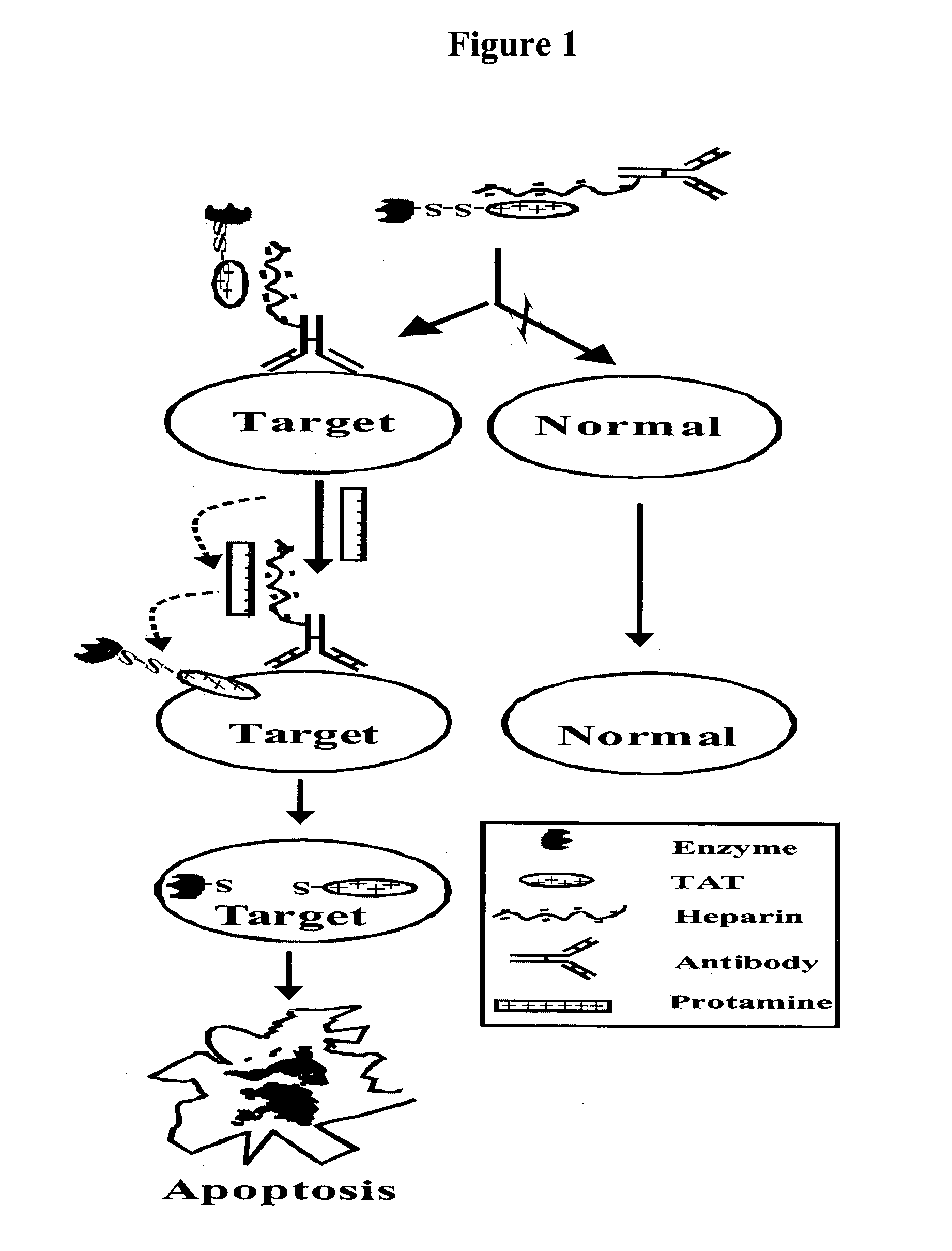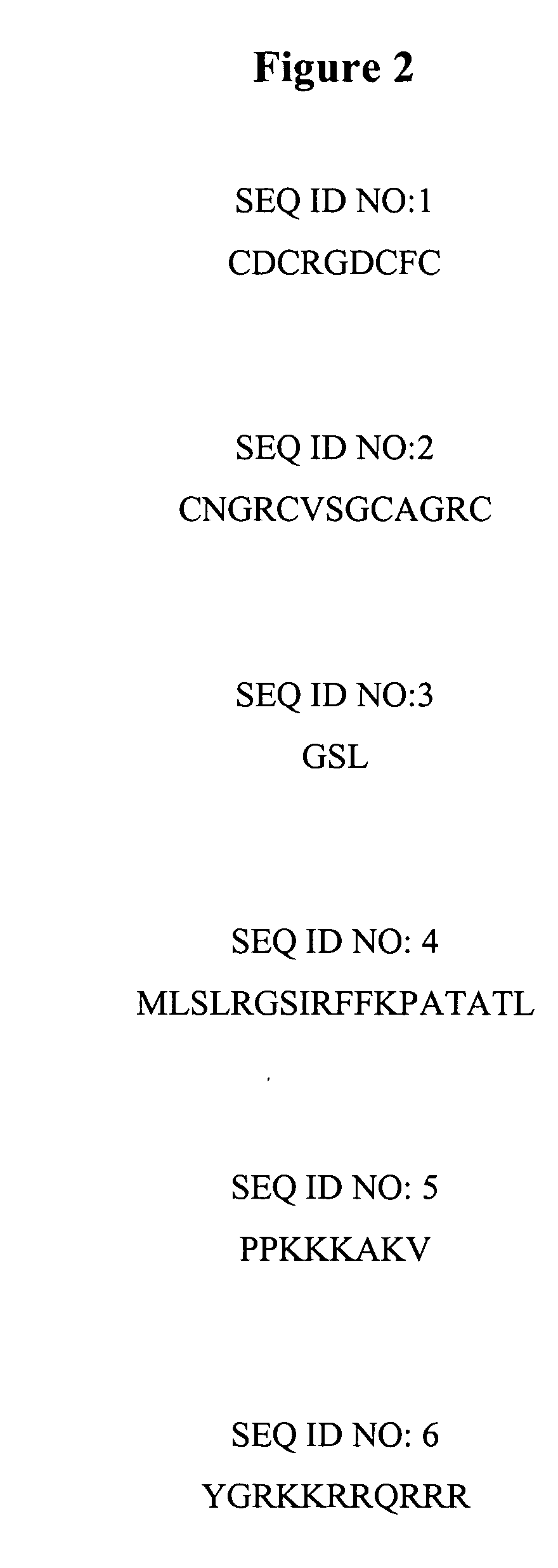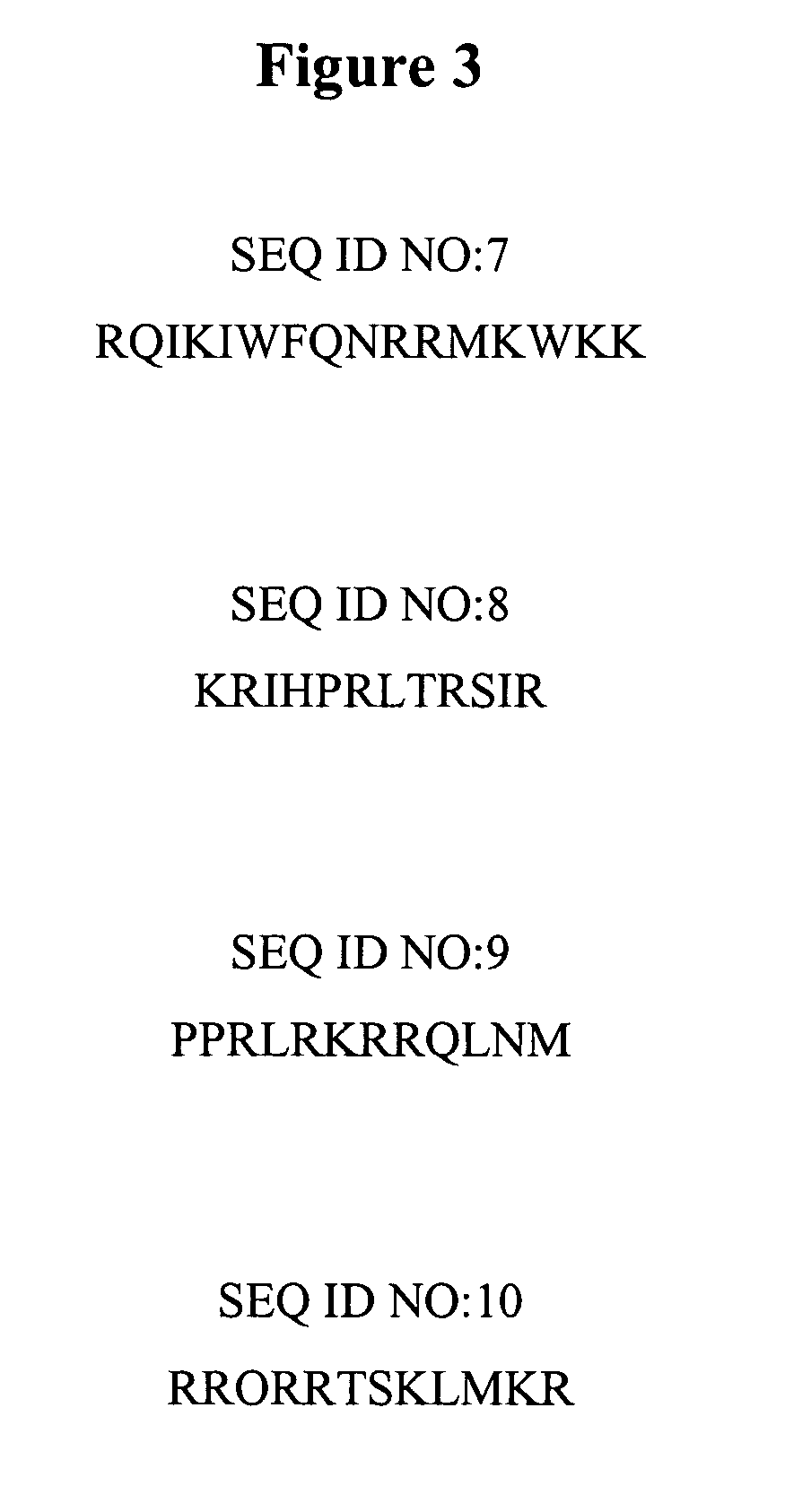Drug delivery compositions
a technology of compositions and drugs, applied in the field of drug delivery compositions, can solve the problems of unintended toxicity, many anticancer agents and their corresponding delivery systems lack sufficient specificity to exclusively target cancer cells, and affect the administration of all drugs
- Summary
- Abstract
- Description
- Claims
- Application Information
AI Technical Summary
Benefits of technology
Problems solved by technology
Method used
Image
Examples
example 1
[0468] General Experimental Design Considerations
[0469] The experiments described herein were designed to demonstrate the abilities of the present compositions to specifically target. and effectively deliver (e.g., translocate therapeutic molecules) across the cell membranes in a variety of cell and tissue types.
[0470] 1. Model Tumor Systems
[0471] In preferred embodiments, an initial consideration in designing specific drug delivery compositions and accompanying validating experiments is the type of aberrant cells and tissues (e.g., diseased cells, and especially tumor cells) sought to be treated. For example, in some embodiments directed to providing drug delivery systems for treating (e.g., targeting and delivering therapeutic agents to cancer cells) cancerous cells and tissues, the present invention provides treatment models for both solid and diffuse tumors. Testing the inventive compositions in two markedly different tumor types (i.e., solid and diffuse) provides insights into ...
example 2
[0487] Characterization (LMWP-Gel)
[0488] In some embodiments, the content of doxorubicin is determined using .sup.1H-NMR analysis by comparing the integration of the proton signal on the C.sub.4 position of tyrosine (7.03 ppm) with that of the C.sub.1 position of doxorubicin (7.80 ppm), whereas the average number of .alpha.-CD in the polyrotaxane (PR) is determined by comparing the integration of the proton signals at 4.79 ppm (C.sub.1 of .alpha.-CD) with that at 3.51 ppm (C.sub.2 of PEG). It is estimated that approximately 25 doxorubicin molecules can be conjugated to a single polyrotaxane molecule with a MW of .about.50 kDa. Chari reported that maximum doxorubicin drug loading per antibody (MW.about.150 kDa) is about 8 molecules. (R. V. J. Chari, Adv. Drug Deliv. Rev., 31:89-104 [1998]). In some embodiments, the polyrotaxane-based drug delivery compositions provide enhanced drug loading over antibody-based systems by about 10 fold on a weight-to-weight basis.
example 3
[0489] Kinetics of Doxorubicin Release from LMWP-Dox Conjugates
[0490] Doxorubicin is slowly released from the polyrotaxane chain by hydrolysis. In order to assess the dose required for in vivo studies, the kinetics of doxorubicin release from the LMWP-Dox-PR conjugates are studied in PBS solution. A typical kinetics study of in vitro drug release is conducted. In general, LWMP-Dox-PR conjugates are incubated in buffer at 37.degree. C. At various time intervals, samples are withdrawn and chromatographed on an HPLC column. The intensity of the doxorubicin peaks at different times are then analyzed and plotted versus time.
PUM
| Property | Measurement | Unit |
|---|---|---|
| Biological properties | aaaaa | aaaaa |
| Therapeutic | aaaaa | aaaaa |
| Hydrophilicity | aaaaa | aaaaa |
Abstract
Description
Claims
Application Information
 Login to View More
Login to View More - R&D
- Intellectual Property
- Life Sciences
- Materials
- Tech Scout
- Unparalleled Data Quality
- Higher Quality Content
- 60% Fewer Hallucinations
Browse by: Latest US Patents, China's latest patents, Technical Efficacy Thesaurus, Application Domain, Technology Topic, Popular Technical Reports.
© 2025 PatSnap. All rights reserved.Legal|Privacy policy|Modern Slavery Act Transparency Statement|Sitemap|About US| Contact US: help@patsnap.com



